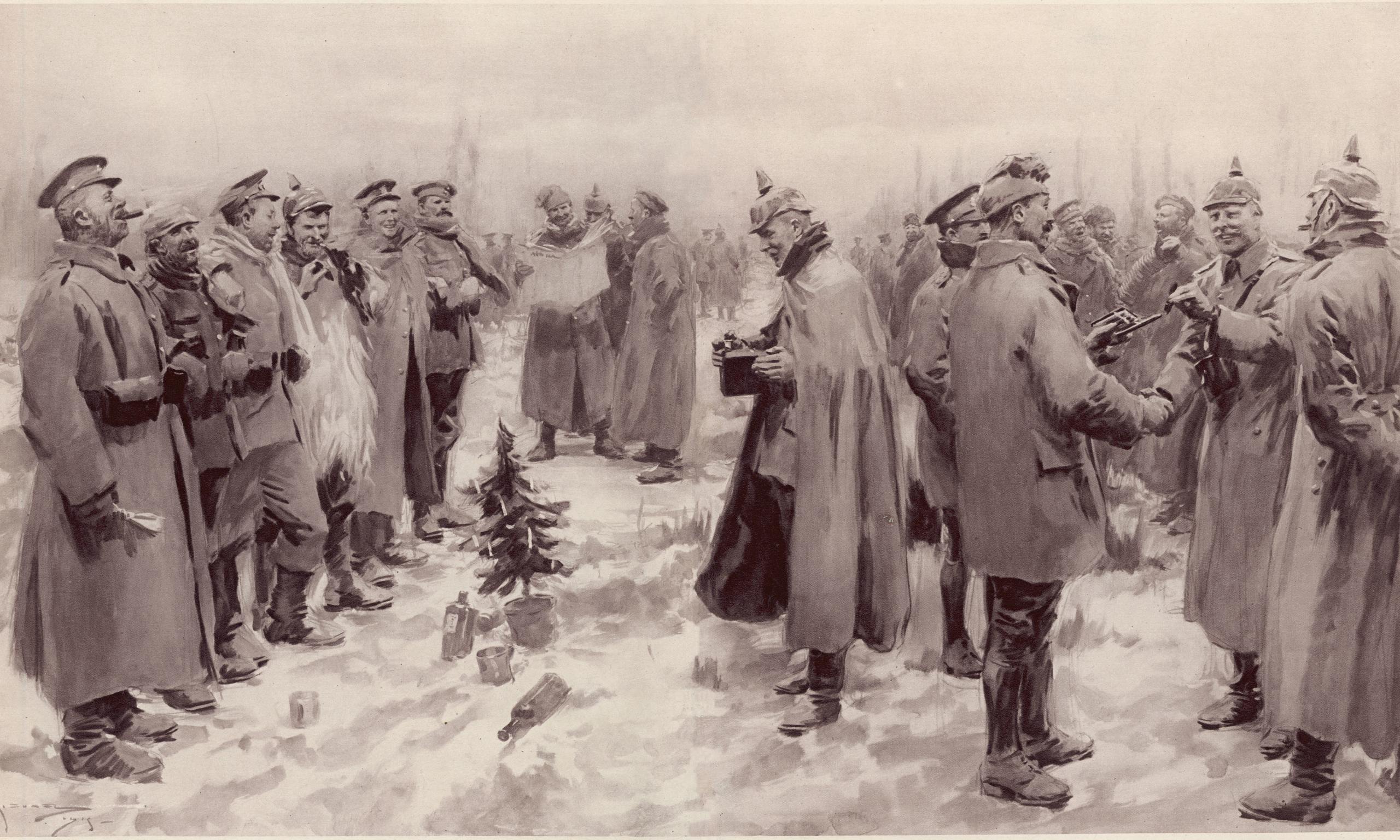Unveiling the Legendary Christmas Truce: A Historic Event on December 24

The time of the Great War, World War I, was marked by immense conflict, suffering, and loss. However, amidst the chaos and hostility, an extraordinary event occurred on December 24 that transcended the boundaries of war. On this historic day, soldiers from opposing sides laid down their weapons and embraced the spirit of Christmas through an impromptu and peaceful ceasefire, forever etching the event into the annals of human history.
The event came to be known as the Christmas Truce, a poignant display of humanity's inherent desire for peace even in the darkest of times. The soldiers involved exhibited remarkable acts of goodwill, chivalry, and camaraderie, defying the expectations of war. Let us delve into the details of this legendary event that unfolded on December 24.
As the winter of 1914 approached, trenches stretched across the Western Front, separating soldiers from Britain, Germany, and France. The trenches represented a grim reality, where soldiers endured the harsh weather conditions and constant threat of enemy fire.
Despite the brutal circumstances, a flicker of hope emerged during the holiday season. The sound of Christmas carols permeated the crisp winter air, transporting soldiers back to happier times, before the ravages of war. The shared nostalgia of Christmas evoked a sense of unity and longing for home amongst the troops.
On the eve of December 24, as dusk enveloped the front lines, something truly extraordinary unfolded. A series of informal ceasefires spontaneously broke out along the Western Front, initiated by soldiers who wished to honor the season of goodwill. The truce started with hesitant gestures, such as putting up small Christmas trees on the parapets and exchanging seasonal greetings between trenches.
Soon, the ceasefires became more substantial. Soldiers stepped out of their trenches, greeted their adversaries, and engaged in heartfelt conversations. Language barriers were overcome through shared songs, showing that music truly is a universal language that unites people. Some soldiers even discovered common ground, discovering acquaintances and friends from their pre-war lives, blurring the lines of enmity.
In the spirit of Christmas, gifts were exchanged between the opposing factions. Simple tokens of appreciation and camaraderie, such as tobacco, chocolates, and personal items, passed hands despite the prevailing circumstances. These modest gifts displayed the soldiers' shared understanding that, at the core, they were all individuals affected by the horrors of war and longing for peace.
A remarkable aspect of the Christmas Truce was the spontaneous sporting events that took place in no-man's-land. Soldiers played games of football, transforming the desolate battlefield into a temporary pitch where foes became teammates. The revelry of these matches temporarily transported the soldiers away from the grim realities of war, reminding them of their shared humanity.
However, it is essential to recognize that the Christmas Truce was not a universal event along the entire Western Front. In certain areas, fighting continued unabated, reflecting the complexities of the war and the differing attitudes of military commanders towards such fraternization.
Although the Christmas Truce lasted only for a brief period, with hostilities resuming soon after, its impact reverberated far beyond the trenches. The event ignited debates and discussions around the ethics of war, the need for diplomacy, and the power of empathy and goodwill. It became a symbol of hope, demonstrating that even in the darkest moments, humanity can rise above conflict and embrace the spirit of unity and peace.
In conclusion, the Christmas Truce of December 24 etched itself as an indelible mark in history during the chaos of World War I. This extraordinary event showcased the resilience of the human spirit and the capacity for empathy and compassion, even in the midst of war. The soldiers involved, through a series of impromptu gestures, united under the banner of Christmas, fostering moments of peace and understanding that transcended their divisions. As we commemorate this historic event, it serves as a timeless reminder of our shared humanity and the power of hope, even in the most trying circumstances.